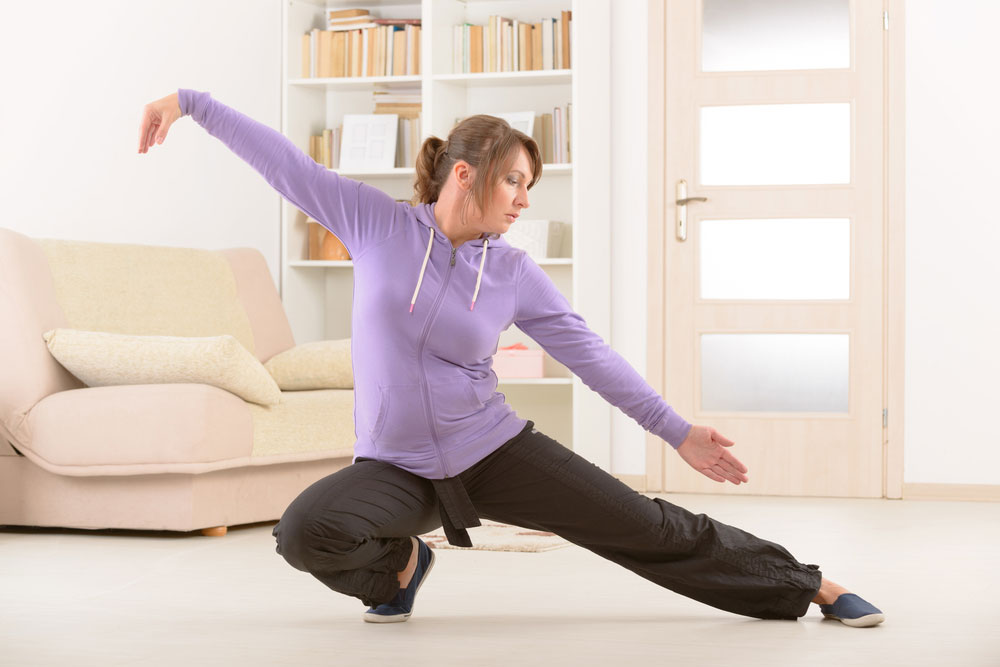As a teenager, like many of my peers, I developed an interest in the external arts of Traditional Chinese Martial arts (TCMA) – the jumpy, lightning-fast Kung Fu fighting style. At the age of 15, I started training in TCMA, and it wasn’t until years later that I was introduced to Qi Gong. Initially, I believed the Qi Gong practice too slow and “phony.” With time, however, I changed my mind completely!
Chinese and other Eastern traditions consider and treat the mind, body, and heart as one unified whole, all part of a holistic energy system. And that, by that tapping into this energy, we can achieve improvements on physical, emotional, mental, and spiritual levels.
Qi Gong – an ancient Chinese practice that is part of both TCMA and Traditional Chinese Medicine (TCM) – can help anyone experience such improvements through a combination of controlled breathing, gentle movement, meditation, visualization, sound practices, and conscious intention.
This “Mastery of Qi” (the translation of “Qi Gong”) practice aims to restore your life energy (“Qi” or “Chi”) and creative power. Considered as an internal practice (no fighting elements), it can improve physical and emotional health, and for some, their martial arts practice.
Eight years ago, I decided to travel to China for more serious, dedicated TCMA training at a Shaolin Academy. Both Qi Gong and Tai Ji were mandatory parts of the training program. While I was doubtful as to their efficacy at first, I quickly changed my mind when, on a freezing cold morning, my hands started heating up during a Qi Gong standing meditation, exactly where my TCMA master told me the energy should flow.
I became even more convinced when I began noticing that I was never bruised or in pain the days after our body-reinforcement sessions (basically having our full bodies getting hit with rods or rocks to strengthen them) thanks to the 2-hours Qi Gong session that always preceded it. Unlike those of my colleagues who skipped the Qi Gong training.
The personal experiences of both myself, colleagues, and friends are that Qi Gong truly helps calm the mind and strengthen the body.
A wealth of benefits
After my return from China, I decided to change my practice and looked for a TCMA teacher who also specialized in internal arts. Since then, I’ve made Qi Gong and Tai Ji a regular part of my practice. As a result, both my health and my martial arts skills have improved significantly.
Unlike Tai Ji, Qi Gong has not been widely studied for its health benefits, and good quality research is still lacking. However, the studies that have been performed to date credit the practice with a host of benefits, including:
- Prevents and helps to manage anxiety and depression
- Increases focus
- Supports cognitive function
- Lowers blood pressure
- Boosts heart health
- Improves lung function
- Supports management of type 2 diabetes
- Improves quality of sleep
- Increases balance, flexibility, and strength
- Improves quality of life of people with chronic health conditions
A Qi Gong practice includes:
- Standing or seated meditation focused on calming the mind, controlling the breath, and the flow of energy.
- A series of exercises of which the best known and most taught is Ba Duan Jin, or the Eight Pieces of Brocade, primarily designated as a form of medical Qi Gong and used for healing.
A typical session starts with exercises to warm up the joints and deepen the breath. These are followed by a series of exercises belonging to a chosen form (Ba Duan Jin, for example) and end with meditation.
Based on my own experience, I am convinced that Qi Gong can help anyone, from teenagers – to channel their energy and focus -, to the elderly – to retake control of their bodies and improve their health. I always recommend it to my martial arts students, as it helps them master their breathing and tremendously enhance their martial arts practice.
I invite you to try Qi Gong and to learn how you can use its ancient Chinese healing secrets to benefit your health and happiness in life.

